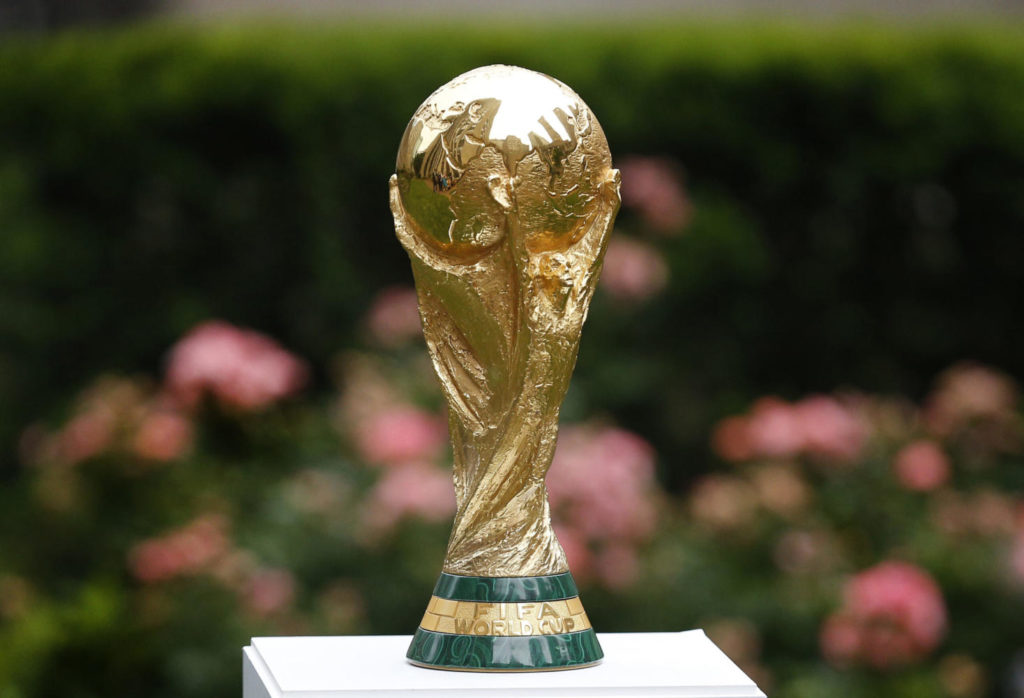Contrary to popular belief—as suggested by the insane Super Bowl viewing numbers—the spiral throwing “ra-ra-ra” sport of football does not dominate around the world, rather it is considered to be miniscule in comparison to a much harsher version of it: rugby. However, there is a football that is recognized on a world scale: soccer. Confusing, isn’t it?
The sport that actually deserves the name football is one of the most popular and dominant sports in the world, with practically every country having some sort of soccer league or soccer development. There are big names such as Real Madrid, Argentina, Barcelona, England, and Brazil, but Ghana, Japan, and even our nation also have soccer teams as well. The FIFA World Cup is a competition that meets every four years—the Olympics of soccer, basically—and houses names from all over the world that compete in tense matches to win the World Cup trophy. This year’s World Cup has been exciting, with underdog wins and way more media attention than ever before, but it’s also quite controversial and can possibly alter the characteristics of this global phenomenon for years to come.
So far, the World Cup hasn’t progressed to the most important matches just yet, but there have definitely been some head turners. Qatar lost their first game despite hosting the World Cup, England scored a record breaking 6 points to Iran’s 2, Argentina—an absolute powerhouse—miraculously lost to Saudi Arabia, Spain crushed Costa Rica with a 7-0 score, and Japan upset Germany with a 2-1 ending. Initially, people thought the big names like Brazil and Argentina would dominate in the World Cup as previously viewed, but all of these crazy matches have made the competition unpredictable, and unpredictability is certainly more fun to watch.
Something that’s worth highlighting in an editorial analysis of this year’s global soccer—football, sorry—event is the massive output of social media attention that it has been gaining (especially on TikTok). Video edits on the app of extremely attractive football players such as Neymar (Jr.), Cristiano Ronaldo, Jude Bellingham, Pablo Gavi, and Finley Burns have been garnering lots of attention and have made people—including myself—more invested in the World Cup even though my last soccer experience was over a decade ago with Smithtown Kickers. General usage of TikTok is insurmountable, and considering that millions of people have been getting the same Neymar edits on their “For You” pages is a key factor in why the World Cup is so popular with young people right now. The significance of this is that it could actually be used as an incredible marketing tool in future World Cups or even in the sport as a whole. It’s a common thing to have some sort of objectification of pop stars like Justin Bieber to garner attention from young fans, but in sports that’s rather rare. If runners of the World Cup and of largely known soccer teams like Manchester United want to increase their popularity and view numbers, it would be a good idea to capitalize on someone like Neymar with good looks and charisma. It would also help sell out merchandise and would get more people to come see the team play which would then in turn increase the profit the corporation would be making as a whole. Higher viewing numbers would then increase the amount of endorsements that a team would be receiving, which overall would have a generally positive effect on the economy.
An ending point I’d like to touch upon would be the controversial part of this competition, which is the setting it’s located in. Thanks to my AP Human Geography final project last year, I’m aware of everything that’s necessary to plan and host the World Cup—I have a 9 page paper available for proof of qualification. Stadium sizes have to be applicable, there needs to be adequate transportation like airports, buses, trains, and taxis, and (most importantly) the host country needs to be able to host the World Cup without seeing a major deficit in their national budget. Qatar, located directly next to Saudi Arabia and the United Arab Emirates, is a small yet rich country. Like the UAE, Qatar makes a small fortune out of its access to foreign workers from poorer countries in surrounding areas like Yemen and Oman, hence its rich nature. Financially, Qatar is a good option to host the World Cup, but there have been talks about boycotting this competition because of Qatar’s issues with human rights. Qatar is known for having a brutal labor system which has resulted in the deaths of over 6,500 migrant workers who supported and built infrastructure for the tournament, as well as the country’s suppression of rights for women and the LGBTQ+ community. Iran is also participating in this year’s tournament, which has caused outrage as women are currently fighting for their lives in the midst of a national execution concerning hijab procedures. Artists like Dua Lipa are boycotting, taking to Twitter in a statement where she says she “look(s) to visiting Qatar when it has fulfilled all the human rights pledges it made.”
This year’s World Cup is certainly a standout from the other ones that have occurred over the years. From the good media coverage to the bad, the whole scheme is looking definitively chaotic. Hopefully Argentina will come through with a win and Messi can clean this whole thing up.
